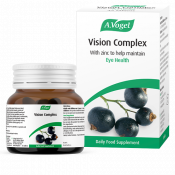An introduction to the human eye
After the brain, the eye is the next most complex organ in the human body. It absorbs light from the objects around us and sends signals to the brain where an image is created, allowing us to see.
It can be difficult to maintain good eye health in modern life. Our eyes are affected by everything from air conditioning, to computer screens, contact lenses, makeup and lack of sleep, as well as factors out of our control such as age and pollen.
To better understand how the eye works and what the consequences of poor eye health are, it is useful to explain the different structures of the eye, and what their functions are.
The structures of the eye
The conjunctiva is the clear membrane that covers the front of the eye. It provides a protective layer to stop dirt and bacteria entering the eye. It needs to be well lubricated by tears and oils in order to fulfil this protective function.
If the production of tears is insufficient, this can cause dry eyes which can lead to a condition called conjunctivitis, where the conjunctiva becomes inflamed. Conjunctivitis can also be caused by infection or allergies.
The cornea is a clear, dome-shaped layer that covers the front of the eye. It provides a barrier against dirt, germs and other particles. It needs to be kept moist by tears in order to keep it healthy, as it has no blood vessels to deliver nourishment.
It also plays a role in focusing light into the eye. It is responsible for about 70% of the eye’s total focusing power, a role shared by the lens. If the cornea gets damaged or infected it can cause a condition called keratitis.
The lens acts much like a camera lens – it adjusts depending on the distance of the object we’re looking at, so that the object is seen in focus. A fault in the lens is a contributing factor to sight problems – for example long-sightedness can be caused by the lens losing its elasticity with age.
Both near and far sightedness are caused when light passing through the lens is not properly focused onto the retina – it either focuses in front of or behind the retina, leaving a fuzzy image.
The retina plays a vital role in vision. It sits at the very back of the eye and is made up of millions of light-sensitive cells. These cells are either rods or cones. Rods make up the majority of the retina and they are very sensitive to light. However, they are not sensitive to colour, so this is what the cones are responsible for.
The macula is a part of the retina. It is about 5mm in diameter and responsible for our centre of vision. Whatever object we are actively focusing on will be in the centre of our vision – everything else that we can see, but aren’t quite looking at, makes up our peripheral vision. If the macula becomes damaged this can cause a condition called macular degeneration.
The iris is the coloured part of the eye that surrounds the pupil. The pupil is the round, dark centre of the eye, and is actually just a hole. It is through this hole that light enters the eye.
The iris contracts and relaxes to allow the pupil to change size – it narrows in bright light to restrict the amount of light entering the eye, and widens in dim light to absorb as much light as possible for clearer vision.
The optic nerve is the bundle of neurons at the back of the eye. This nerve carries impulses from the eye to the brain, where they are interpreted and turned into an image of what the eyes are seeing. The optic nerve can be damaged by a condition called glaucoma.
Eye problems
Small changes in the eye can often be an indication of a larger problem, such as infection, allergy or irritation. If you’re wondering what your eye symptom could be caused by or could be an indication of, we’ve got pages covering dry eyes, itchy eyes, watery eyes, puffy eyes, eye discharge, eye floaters, eye twitches, red/bloodshot eyes, tired eyes and blurry vision.
Throughout these pages we recommend herbal and natural remedies to help ease your symptoms. However, if your symptoms are severe, such as eye pain, bleeding of the eye or sudden blurry vision, or if you suspect that you have a more serious condition, it is important to consult your optician or GP immediately.
Eye Conditions
If you want a bit more information on specific eye conditions, such as causes, symptoms and treatments, we have pages covering a number of common conditions including: conjunctivitis, keratitis, blepharitis, macular degeneration, cataracts, glaucoma, Computer Vision Syndrome, eye strain and styes.
Where we can, we try to offer natural and herbal solutions so you can treat your condition or speed up recovery from home. However, it is important that you consult your doctor or optician in the case of serious conditions and follow their treatment advice, as some of these conditions can severely damage vision if not treated correctly.
Herbal remedies for eyes
We have two key products for maintaining eye health – Vision Complex and Euphrasia.
Vision Complex contains nutrients such as zinc, lutein, beta-carotene and zeaxanthin which are vital for maintaining healthy eyes and good vision.
Euphrasia is available in tincture or eye drop form. This herb has been used for hundreds of years to treat eye problems, earning its name alternate name, Eyebright. The eye drops are great for dry, irritated or tired eyes, and can be used while wearing contact lenses. The tincture can be taken orally to boost general eye health.








